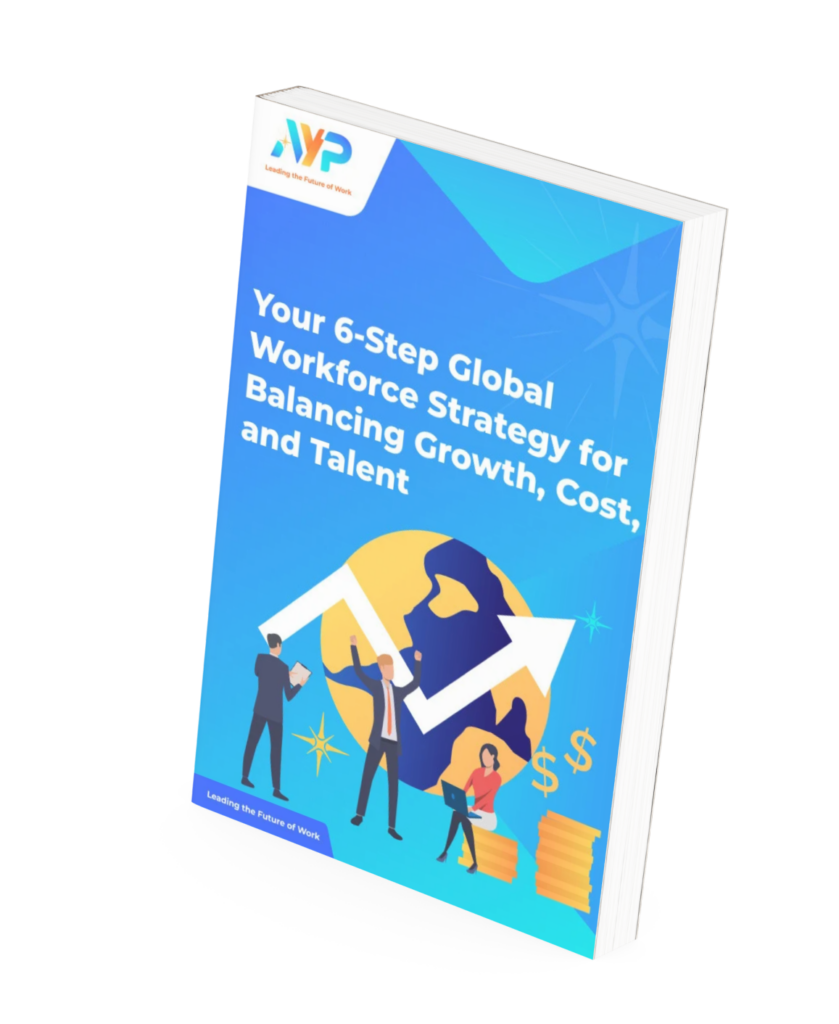With AYP’s EOR solutions, you don’t need a legal entity to expand your business to Singapore today. Here’s why.
There are many local laws and regulations you should know of when expanding your business overseas. After all, you wouldn’t want to risk getting into any legal troubles. So how can you best expand your business overseas legally and without any hassle?
AYP’s EOR solutions provide convenient answers to all your problems. By relying on data and analytics, AYP can help you hire overseas, onboard remotely, and manage your tax responsibilities and compliance across countries.
In fact, you can achieve all this and more by using a single digital platform. Here are 5 quick tips on how to build a team in Singapore:
Learn about Singapore’s Key Employment Terms (KETs)
According to Singapore’s Employment Act, all employers have to give their employees written KETs within 14 days of employment. KETs state the basic terms of employment, and they are to be included in an employment contract.
Some examples would include position, jobscope, expected days and hours in a given workweek, compensation, employment benefits, and other details an employee should know of.
Singapore doesn’t have a mandatory minimum wage
Although Singapore doesn’t have a law regarding minimum wage, the government has other requirements for employment under the Employment Act. For example, the maximum number of working hours per week is 44, and employees are entitled to one rest day per week.
If employees do overtime, they are qualified for overtime pay, as long as they earn up to S$2,600 as a non-workman and up to S$4,500 as a workman. The overtime pay rate is 1.5 times their regular hourly pay.
Employers also typically provide their employees with a 13th-month bonus, which is also known as Annual Wage Supplement (AWS). AWS is not made compulsory, but employers are encouraged to offer AWS to their employees.
Read about Singapore’s annual leave policies
On top of 11 paid holidays, Singapore’s Ministry of Manpower states that employees should have at least 7 days of annual leave. The typical employer grants employees a minimum of 14 days of annual leave as common practice.
The annual leave does not include the two types of paid medical leave. Once an employee has worked six months or more for a company, they are entitled to 14 paid sick days and up to 60 days of paid hospitalisation leave.
Take note of Singapore’s Central Provident Fund (CPF)
In Singapore, CPF is a savings and pension plan for all Singaporeans and Singapore Permanent Residents. Both employees and employers contribute to this fund, and the amount of contribution is dependent on the employee’s age.
For employees below 55 years old, employers contribute an amount equal to 17% of an employee’s salary and employees contribute 20%.
Take note of the licences and permits needed to do business in Singapore
To start hiring and building a team in Singapore, you have to register your company. You need to approve your company name with the Accounting and Corporate Regulatory Authority (ACRA) and hand in the necessary documentation.
There are also requirements you have to meet before registering your company, such as having at least one shareholder, a Singapore-based director, a Singaporean secretary, a minimum amount of capital in the bank, and a physical business address in Singapore.
You also have to register with CPF, and get the licences needed for your particular industry.
With these five tips in mind, you are more ready to expand your business to Singapore. But do take note that these rules and regulations may change over the years, and there are other details that you should learn more about, such as language and culture.
If you are keen to quickly build a team in Singapore and skip all the paperwork, AYP EOR solutions can be a great help.
You can outsource all of your HR tasks to us, and start building a team even without a legal entity. In fact, with our headquarters in Singapore, AYP can definitely get the job done without any trouble.
Featured Content
1. EOR Innovations That Add Value To Your Company
2. 6 Tips for Onboarding New Employees from Different Countries


